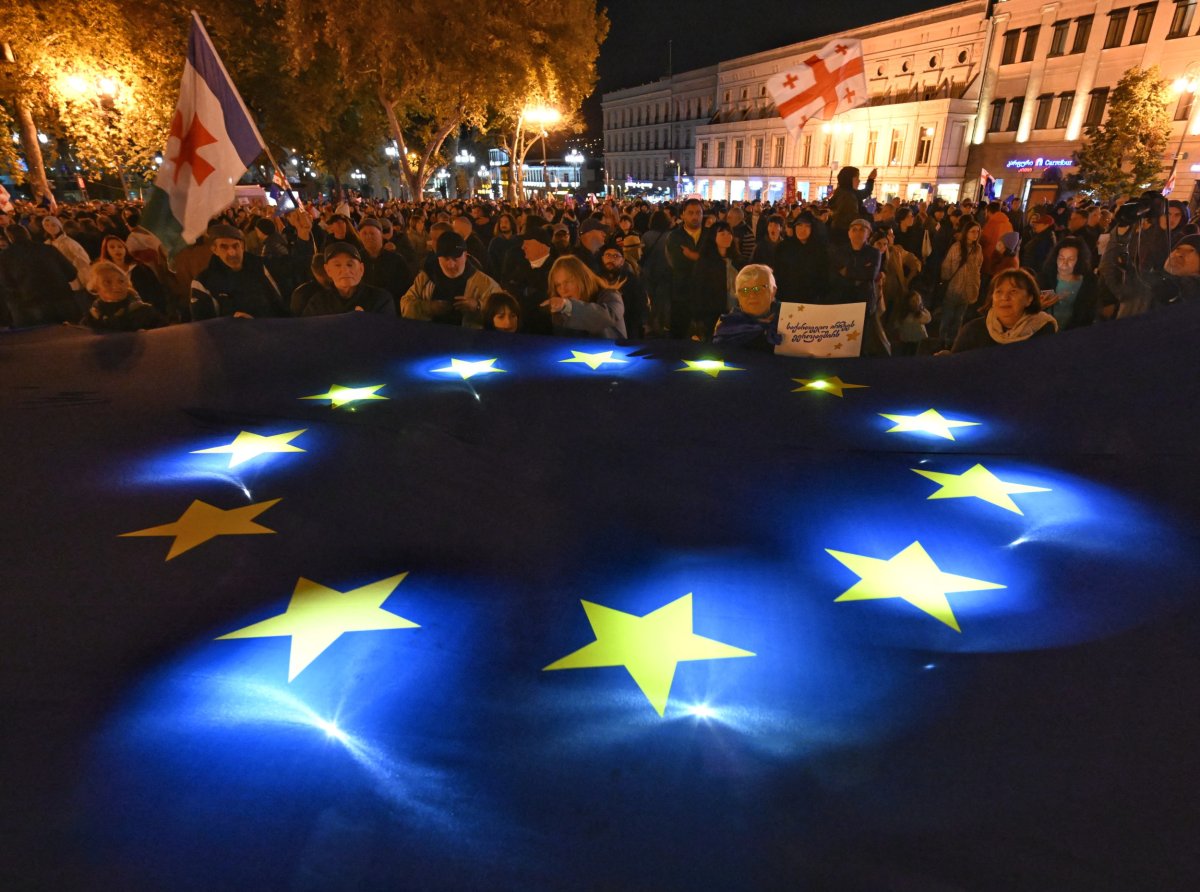Political groups that seek to bring the country of Georgia into NATO and the European Union have a combined lead over a ruling party that has taken the former Soviet republic nearer to Moscow, polling showed ahead of Saturday's critical parliamentary elections.
The elections have been described by critics of the ruling Georgian Dream party of billionaire Bidzina Ivanishvili as a last chance to bring Georgia back toward the West, and to secure democracy. The country of nearly four million people borders Russia to its north and has a strategic position on energy transit routes.
Georgian Dream has threatened a ban on its opponents and styled them as a "global war party" that would risk a Ukraine-type scenario in a country that was invaded by Russia in 2008, and where Russian troops remain in two breakaway regions. Ivanishvili has also been critical of liberal EU policies such as over LGBTQ+ rights.

Georgian Dream was set to emerge as the largest party after the election, with support from 34 percent of people, according to a survey by Edison Research. But a combined 53 percent would vote for four different opposition factions that have pledged to work together to remove laws that would stop progress toward the EU, it showed. It said 64 percent of people thought Georgia was currently headed in the wrong direction.
Georgian Dream did not immediately respond to Newsweek's emailed request for comment.
"Opinion polls indicate the ruling Georgian Dream party is heading for the exit, but of course that assumes Saturday's elections are conducted in a manner which is free and fair," Petre Tsiskarishvili, political secretary of the opposition United National Movement, told Newsweek.
"The United States has found that previous ballots have been marred by vote buying and intimidation—which is why opposition groups in Georgia want the eyes of the world on this count."
Vote Could Deliver Blow to Putin
If the opposition wins, it would be a blow to President Vladimir Putin just a week after Moldova voted narrowly to join the European Union. If Georgian Dream wins, it would be damaging for Western prestige in the region.
Georgian Dream has been accused by its opponents and Western countries of taking an authoritarian and pro-Russian turn after the passage in May of a new law that cracks down on media and non-governmental organizations receiving foreign funding. In response, the EU suspended accession talks while both it and the United States scaled back aid.
The U.S. based Institute for the Study of War said Saturday's elections "present the Kremlin opportunities to derail Georgia's long-term Euro-Atlantic integration efforts and reestablish Russian influence over Georgia."
Both sides have staged mass rallies in the capital, Tbilisi, over the past week.
Western-supported anti-corruption group Transparency International Georgia raised questions over the fairness of Saturday's vote. It cited the new law, harassment of civil society and critical media, attacks on opposition figures, coercion of voters, mobilizing public employees for the ruling party campaign, and using budget programs for partisan purposes.
"[W]hen the line between the ruling party and the state has effectively been erased, [it] is a serious problem for the fairness of the election environment," it said in a statement.
Such accusations have been dismissed by parliament chairman Shalva Papuashvili, a member of Georgian Dream, who said the opposition could seek to delegitimize the election result along the lines of challenges to Georgia's 2020 election.
"The actions of the opposition, their media, and affiliated NGOs confirm the troubling notion that a repeat of the 2020 scenario is being orchestrated, providing a false pretext for rejecting the election results," he was quoted as saying by online publication Agenda.ge.




















 English (US) ·
English (US) ·